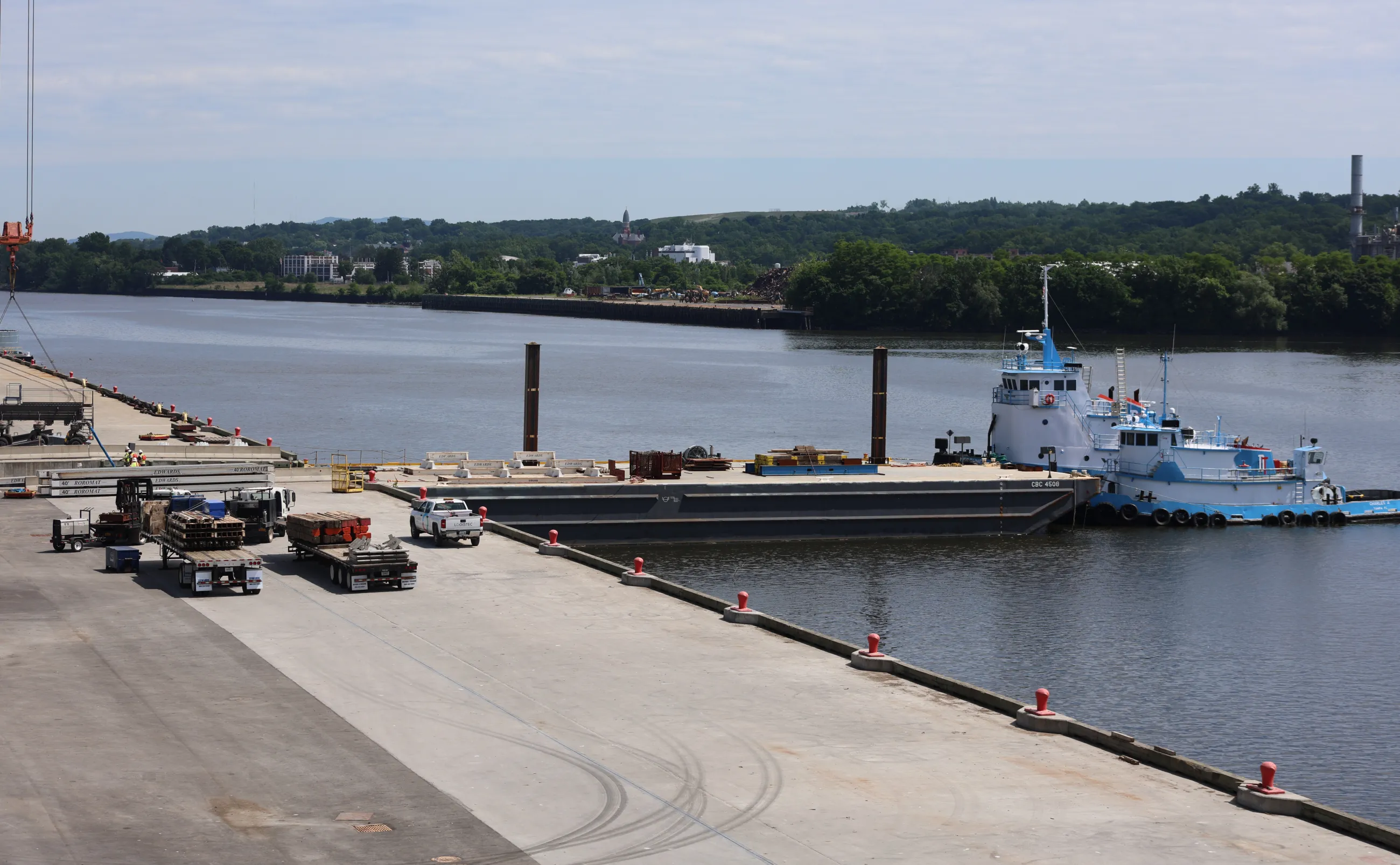(a) All articles N.O.S. herein $2.90;
(b) Wood pulp (per Metric Ton) $1.10;
(c) Heavy Lifts - Articles Weighing: less than 50,000 lbs. per piece or pkg. $2.99/ton; 50,000 lbs. to 200,000 lbs. per piece or pkg. $4.43/ton; over 200,000 lbs. per piece or pkg. $5.51/ton;
(d) Aluminum, Iron, and/or Steel in Bundles, Coils, Pigs, or Slabs per ton $1.65;
(e) Scrap Iron per ton $.77;
(f) Bagged Cargos: loose, pre-slung, or containerized $2.25;
(g) Loaded containers, any length $33/container. Empty containers, any length, upon request.
(h) Wharfage charges may be assessed on a measurement basis where such a computation exceeds wharfage charges computed on a weight basis.
